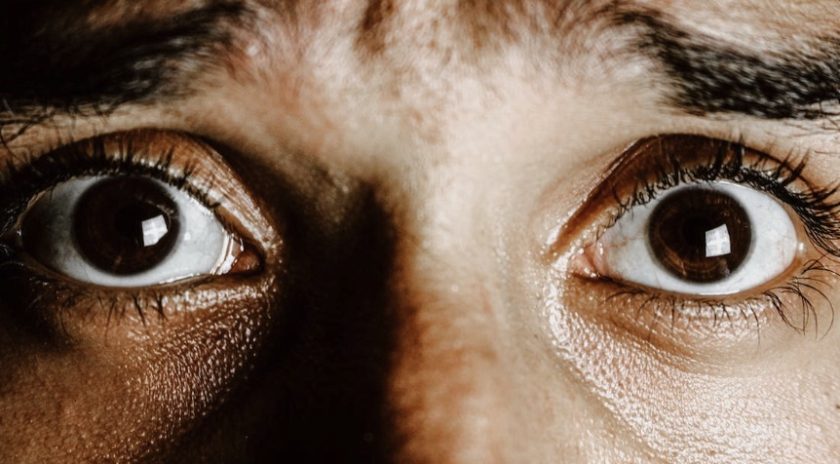Channel 4 is looking for people in Flintshire with uncontrollable phobias for new documentary

The documentary aims to shine a spotlight on the powerful and often paralysing fears that individuals may harbour – from the widely recognised phobias like arachnophobia (fear of spiders) and acrophobia (fear of heights) to the more unique and less-discussed fears such as koumpounophobia (fear of buttons).
The series promises not just to be a showcase of these fears but also an exploration into a cutting-edge psychological therapy grounded in the latest research.
This innovative approach is projected to offer real solutions and relief for participants, potentially changing their lives for the better.
Wonderhood Studios’ website beckons potential participants: “Is your phobia stopping you from seeing friends and family, or living life to the full? Are you ready to try to beat it?” Their mission is clear: to offer a transformative experience for individuals who feel held back by their phobias.”
It’s not just an opportunity for the individuals participating; viewers will also gain insights into the world of phobias and perhaps even find inspiration in the brave steps taken by the documentary’s participants.
Those interested in this life-altering experience can apply directly via Wonderhood Studios’ website by completing a brief questionnaire. Click here.
According to the NHS, a phobia is an overwhelming and debilitating fear of an object, place, situation, feeling or animal.
Phobias are more pronounced than fears. They develop when a person has an exaggerated or unrealistic sense of danger about a situation or object.
If a phobia becomes very severe, a person may organise their life around avoiding the thing that’s causing them anxiety. As well as restricting their day-to-day life, it can also cause a lot of distress.
Phobia symptoms
A phobia is a type of anxiety disorder. You may not experience any symptoms until you come into contact with the source of your phobia.
But in some cases, even thinking about the source of a phobia can make a person feel anxious or panicky. This is known as anticipatory anxiety.
Symptoms may include:
- unsteadiness, dizziness and lightheadedness
- nausea
- sweating
- increased heart rate or palpitations
- shortness of breath
- trembling or shaking
- an upset stomach
If you do not come into contact with the source of your phobia very often, it may not affect your everyday life.
But if you have a complex phobia, such as agoraphobia, leading a normal life may be very difficult.
There are a wide variety of objects or situations that someone could develop a phobia about.
But phobias can be divided into 2 main categories:
- specific or simple phobias
- complex phobias
Specific or simple phobias
Specific or simple phobias centre around a particular object, animal, situation or activity.
They often develop during childhood or adolescence and may become less severe as you get older.
Common examples of simple phobias include:
- animal phobias – such as dogs, spiders, snakes or rodents
- environmental phobias – such as heights, deep water and germs
- situational phobias – such as visiting the dentist or flying
- bodily phobias – such as blood, vomit or having injections
- sexual phobias – such as performance anxiety or the fear of getting a sexually transmitted infection (STI)
Complex phobias
Complex phobias tend to be more disabling than simple phobias. They usually develop during adulthood and are often associated with a deep-rooted fear or anxiety about a particular situation or circumstance.
The 2 most common complex phobias are:
Agoraphobia is often thought of as a fear of open spaces, but it’s much more complex than this.
Someone with agoraphobia will feel anxious about being in a place or situation where escaping may be difficult if they have a panic attack.
The anxiety usually results in the person avoiding situations such as:
- being alone
- being in crowded places, such as busy restaurants or supermarkets
- travelling on public transport
Social phobia, also known as social anxiety disorder, centres around feeling anxious in social situations.
If you have a social phobia, you might be afraid of speaking in front of people for fear of embarrassing yourself and being humiliated in public.
In severe cases, this can become debilitating and may prevent you carrying out everyday activities, such as eating out or meeting friends.
Phobias do not seem to have a single cause, but there are a number of associated factors.
For example:
- a phobia may be associated with a particular incident or trauma
- a phobia may be a learned response that a person develops early in life from a parent or sibling (brother or sister)
- genetics may play a role – there’s evidence to suggest that some people are born with a tendency to be more anxious than others
Phobias are not always formally diagnosed. Most people with a phobia are fully aware of the problem.
A person will sometimes choose to live with a phobia, taking great care to avoid the object or situation they’re afraid of.
But if you have a phobia, continually trying to avoid what you’re afraid of could make the situation worse.
Ask a GP for help if you have a phobia. They may refer you to a specialist with expertise in behavioural therapy, such as a psychologist.
You can refer yourself directly to an NHS talking therapies service without a referral from a GP.
Treating phobias
Most phobias can be treated successfully.
Simple phobias can be treated through gradual exposure to the object, animal, place or situation that causes fear and anxiety. This is known as desensitisation or self-exposure therapy.
You could try these methods with the help of a professional or as part of a self-help programme.
Treating complex phobias often takes longer and involves talking therapies, such as:
Medication may be prescribed to help with anxiety caused by certain phobias.
Medicines that may be used include:
- antidepressants
- tranquillisers
- beta blockers
Phobias are a common type of anxiety disorder.
They can affect anyone, regardless of age, sex and social background.
Some of the most common phobias include:
- arachnophobia – fear of spiders
- claustrophobia – fear of confined spaces
- agoraphobia – fear of open spaces and public places
- social phobia – fear of social situations









